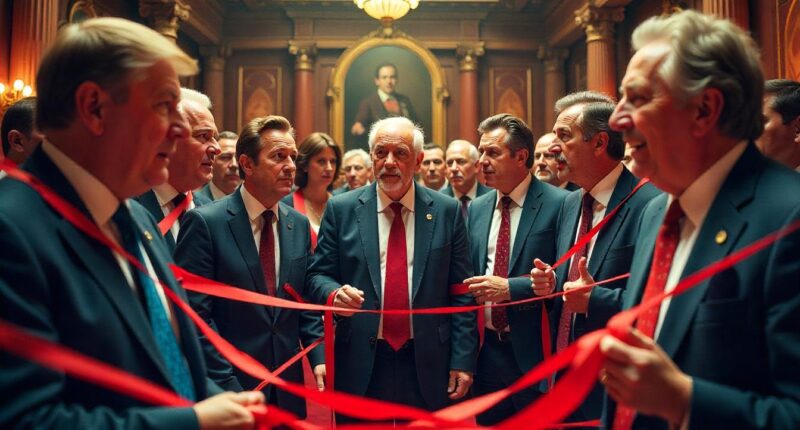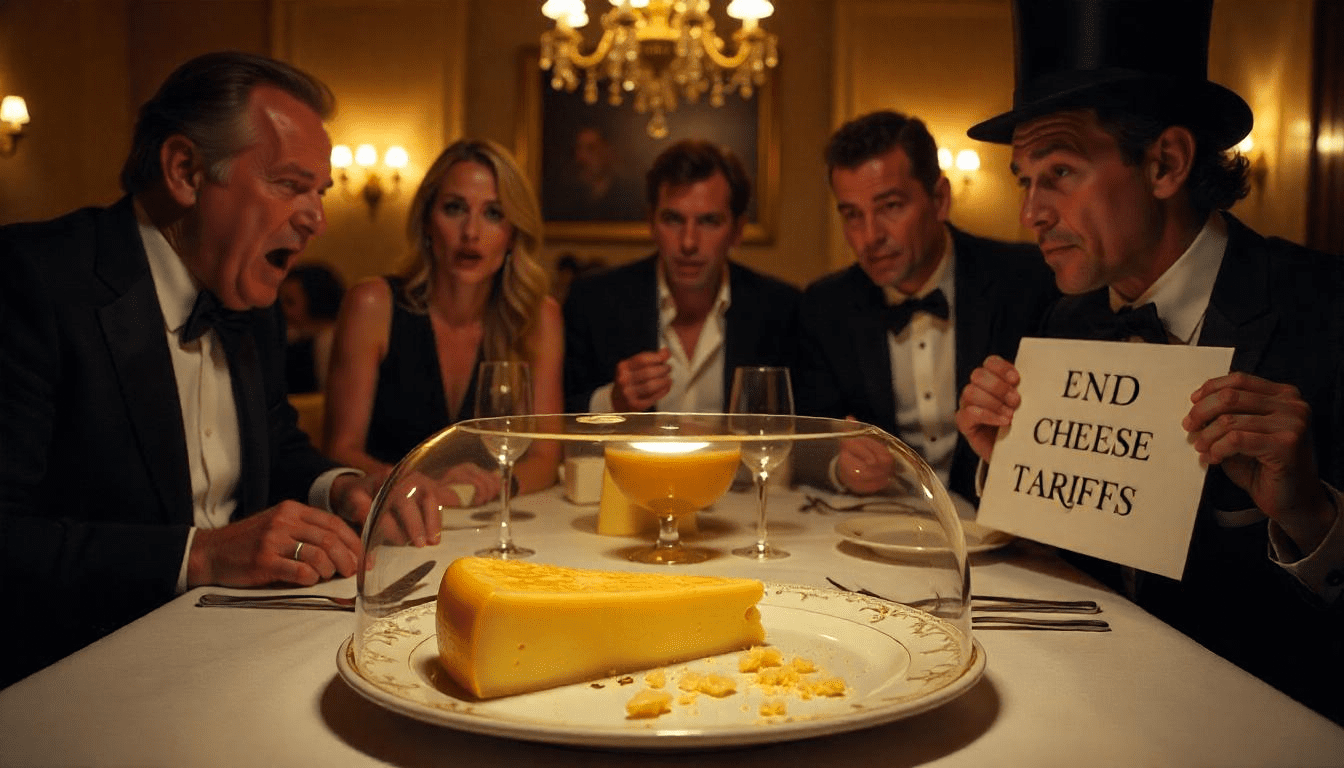Lawmakers Question the Value of Their Own Discussions in Marathon Session
In a move that has left political analysts both bemused and bewildered, the UK Parliament recently convened a marathon session to debate the very essence of debating. The motion on the floor: “This House questions the efficacy and necessity of its own debates.” What followed was a spectacle that could only be described as the legislative equivalent of a dog chasing its own tail.
The Motion’s Genesis
The motion was introduced by the Right Honourable Sir Reginald Buffington-Smythe, MP for the constituency of Upper Much-Mumbling. Sir Reginald, known for his penchant for navel-gazing inquiries, opened with a rousing speech.
“Esteemed colleagues,” he began, adjusting his monocle for dramatic effect, “we gather here today to ponder a matter of utmost importance: Are our debates a profound exercise in democratic discourse, or are they merely verbose vacuums where good sense goes to die?”
A Debate on Debates
The irony of debating the value of debates was not lost on the members. The Honourable Lady Penelope Featherington, MP for West Under-Bumble, rose to counter the motion.
“Mr. Speaker, if we cease to debate, how shall we fill the endless hours between tea breaks and the occasional scandal?” she queried, eliciting murmurs of agreement and a few chuckles.
The debate raged on, with members from all sides weighing in. The Right Honourable Gentleman from North Piddle-on-the-Wold argued that debates were essential for the ventilation of hot air, a resource Parliament had in abundance. Meanwhile, the MP for Little Snoring suggested that without debates, MPs might be forced to engage in actual work, a prospect too horrifying to contemplate.
Public Reaction
Outside the hallowed halls, the public’s reaction was a mix of amusement and exasperation. A poll conducted by the Daily Muckraker revealed that 62% of respondents believed MPs were “taking the mickey,” while 38% thought this was “business as usual.” One respondent commented, “It’s like watching a group of toddlers argue over who gets the red crayon, but less productive.”
The Vote
After hours of circular arguments, tangential anecdotes, and the consumption of an alarming number of biscuits, the motion was put to a vote. In a display of peak parliamentary logic, the motion to question the necessity of debates was defeated by a narrow margin. This outcome ensured that debates would continue unabated, much to the relief of those who enjoy the theatricality of it all.
In the end, the UK Parliament’s debate on debating served as a poignant reminder of the institution’s enduring commitment to, well, itself. As MPs filed out of the chamber, there was a palpable sense of accomplishment, though no one could quite articulate what had been achieved. Perhaps, in the grand tradition of British politics, that was the point all along.









